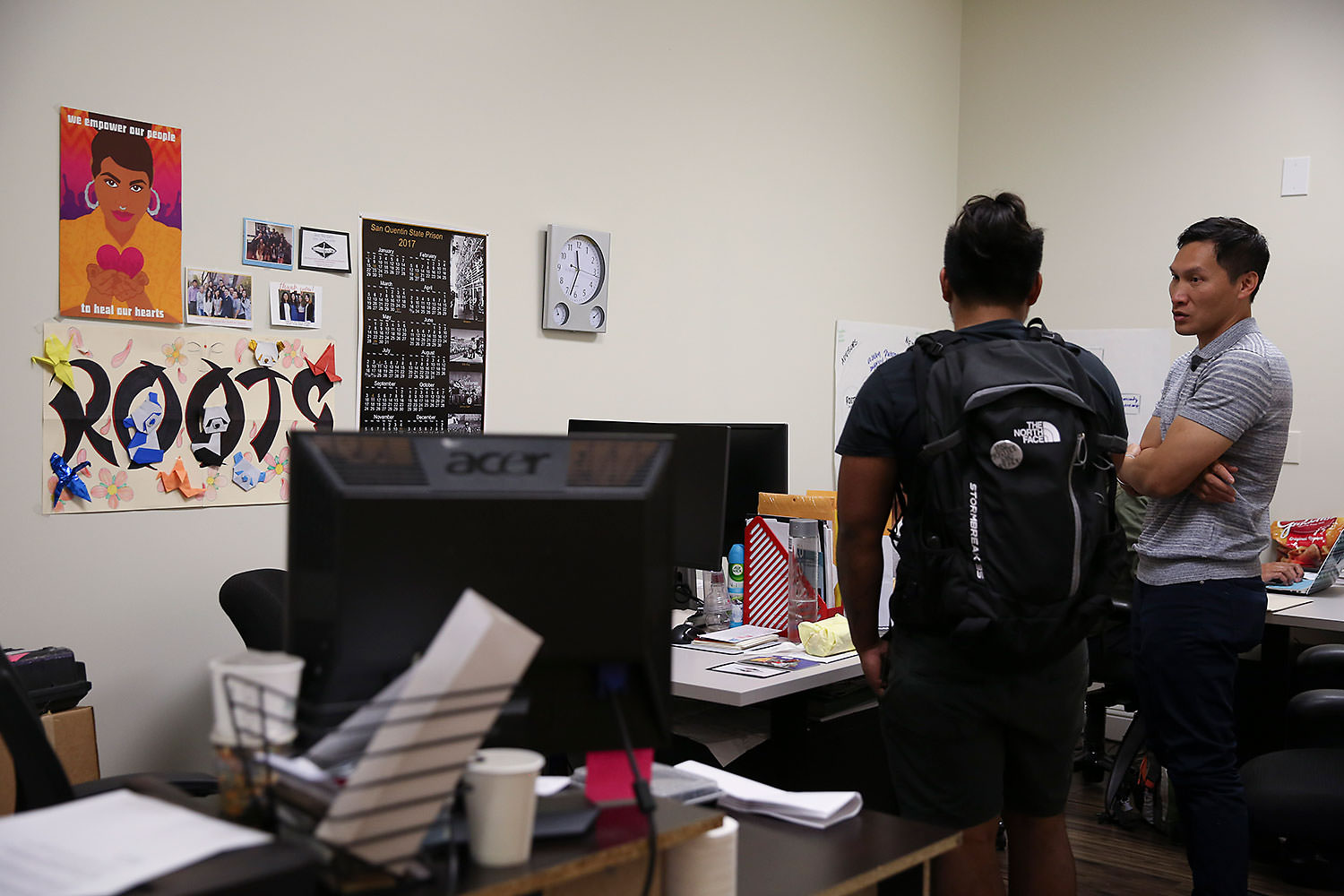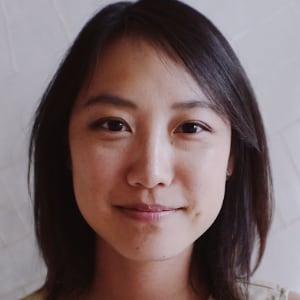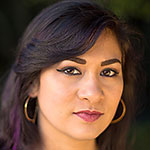
Eddy Zheng is often invited to community organizations or churches to share his redemptive story from prison to re-entry. It is incredible to hear how much Eddy has changed in his lifetime amidst daunting circumstances and the length of time he has had to fight for his freedom. But in certain church settings, after giving his talk, Eddy has been met with distrust, rather than open arms.
Eddy was incarcerated as a teenager who couldn’t speak much English at the age of 16. He had been part of a horrific robbery that involved breaking into the home of a Chinese family, locking up their two children in the bathroom, and ultimately kidnapping and terrorizing the wife to extort more money.
During the trial, his family, who also spoke little English and had a court-appointed attorney due to their lack of money, urged Eddy to plead guilty under the assumption that it would give him a more lenient sentence. This caused Eddy to be tried as an adult without a full understanding of the legal language used to determine his future. He was not aware he had been sentenced to seven years to life until he arrived at California Youth Authority.
From January 1986 to 2005, Eddy was transferred between various prison facilities for 20 years, becoming a model prisoner by teaching himself English, passing the GED, earning an Associate of Arts degree, and teaching crime prevention workshops. He even fell in love with his English tutor, who he’d eventually marry. But upon his release on parole, the U.S. Immigration and Customs Enforcement (ICE) immediately detained him for another two years for mandatory detention and deportation.
Eddy was able to emerge from that fight in January 2017, when he gained his U.S. citizenship. With his freedom, he chooses to give his time to other inmates in prison through the Asian Prisoner Support Committee, teaching Asian American history and addressing the impact of intergenerational trauma on immigrant and refugee communities through the Restoring Our Original True Selves (ROOTS) program. ROOTS also builds community support networks and increases opportunities for transformation and reentry.
After his talks, people often shake his hand and celebrate what an inspiring Christian he is. But Eddy Zheng is not Christian. Usually, he politely corrects them and tries to move on from the awkward pause.

The misunderstanding is understandable: Eddy attended church for 10 years while in prison and eventually served as a choir director for the Catholic mass at San Quentin State Prison. It’s difficult to imagine anyone attending church for that long, let alone acting in a serving capacity, without being or becoming a believer. His Wikipedia page even mentions that he’s a Christian, and despite Eddy’s several attempts to address the mistake, the original author has not allowed the change. And then there’s Eddy’s story as standalone evidence of transformation.
Eddy’s life provokes the question of whether or not we as Christians can value and learn from the lives of non-Christians, thus informing our choice to embrace or separate ourselves even further from people of different or non-religious identities.
• • •
Eddy was first exposed to the Christian church in China as a young boy. He vaguely remembers hearing the stories of Jesus and seeing icons of who Jesus was, but Eddy never stepped foot into a church until after his parents immigrated to Chinatown in Oakland, California.
He initially went to church with his friends for one reason: girls.However, he recounted enjoying the community, especially as an immigrant child who couldn’t speak English. It was a space where he didn’t feel so alone.
The sense of not being alone was what drew him to church in prison. Eddy started to attend church in San Francisco’s juvenile hall. On Sundays, attending church was the only reason an inmate would be allowed to leave their cell. Eddy went to three services to take full advantage of this privilege — the Catholic mass, the following Protestant service, and Buddhist meditation — to be with his friends.
Eddy compares the prison space to a leper colony, an out of sight place where a group of people are sequestered together against their will, tainted with the disease of poverty, criminal violence, or what have you, that no one wantsto touch.
“But in church, we were all peers and people from the outside came to embrace us. It was a safe space to come with a friend. Being locked in a cell or the yard, the guards are constantly watching you and it’s constantly noisy. But in chapel, I feel like I can be myself. The guards aren’t physically in there with you. I don’t have to worry about someone hurting me in that space. But in the mainline population, it’s different.”

It’s taken Eddy some time to transition back into civilian life. The organizing and publicity around his case has created a public persona for Eddy, including a documentary bearing his name titled “Breathin’: The Eddy Zheng Story”. He is no longer walled off from the rest of society and is free to stroll the streets of Oakland’s Chinatown “like a regular person”.
But what surprises him is that his former status as a felon is not what distances him from others; these days, he most acutely feels distance when people who identify as Christians realize he’s not a believer of Jesus.
• • •
There is an in-group understanding when Christians come together, a “we’re on the same team” mentality, despite denominational or theological differences. Upon first hearing Eddy’s story, it may easily be ascribed as a testament of God’s faithfulness to a prodigal son, redeeming the horrors of imprisonment from a young age into a life of service for others who are still in prison.
However, one of Eddy’s favorite sayings is, “Breath helped me stay alive inside; I’d canter to myself and focus on living. I was mentally free before I was physically free. I was told, ‘You have to be a Christian to change.’ But education changed me, with the support of the community, and my family being there for me.”
To attribute such transformation to anything other than God can be outright offensive to Christian ears. Suddenly, any gratitude in hearing Eddy’s hard-won story shifts to distrust and a drawing of a line in the sand: You are not one of us. You don’t know the real truth. Perhaps, you’re not really free. Somehow, the beauty of his story is diminished without God in the picture.
The lack of shared belief gives cause to invalidate his insights, now questionable, and his change, now self-glorifying. Such a life is to be pitied, for “then I considered all that my hands had done and the toil I had expended in doing it, and behold, all was vanity and a striving after wind, and there was nothing to be gained under the sun” (Eccl. 2:11, ESV).
Understandably, Christians want to claim Eddy and the clear victory of his story in a time when people are wary of self-identifying themselves as evangelical. We share testimonies because they tell of how God is at work or “relevant” in our lives, and they stretch the capacity of our imagination, pointing to a way where there was no way. A miracle, a prayer, a hope is made possible because it was made real for another when Jesus was relied upon.
But can we value and embrace powerful stories of transformation like Eddy’s in which God is not directly invoked?
Eddy’s story of transformation — resonant with a Christian narrative of redemption while eschewing a Christian label — complicates our understanding of how God works in the world, and it is worthwhile to value and respect Eddy’s story, even when it doesn’t fit a certain religious discourse.
Eddy’s relationship to the church, whether in prison or on the outside, has developed in a context that can only be understood in relation to his separation from society as a convicted felon. It was in a prison church where he felt the most safe and loved by others, whether or not he was a Christian. But it was in certain churches on the outside where he has felt the most unembraced, feeling the distance not because he was a former inmate, but because he’s not Christian.
For Christians to separate themselves from non-explicitly Christian narratives is counter to creating a safe space that proclaims: Come one, come all. Church is where people come with vulnerability and hope for connection, to affirm good news amidst pain and suffering. Perhaps with the label of “Christian”, we’ve covered over our ability to recognize good news within and around us in an effort to appear truly saved or whole, blocking off the vulnerable, complex parts that allow us to connect with one another.
Still, every now and then, Eddy finds himself wandering into an open church, slipping into a pew and sitting there for a while. In prison, he says, “It was literally sanctuary. The quiet was calming. The silence was a luxury.” Church is a space that reminds him of the gift of having a safe moment to recollect where he’s come from and how far he’s come, comforted by a familiar place, if not by its people.

Sarah D. Park (she/her) is a second generation Korean American born in Los Angeles, CA. Her work reflects her value for finding abundance in community and the power of telling our own stories. She’s currently based in NYC and spends her time eating cheeseburgers, creating community spaces, and enjoying her son.

Emma Marie Chiang is an independent visual journalist and proud San Francisco native. Emma focuses on documenting stories of displaced communities and cares about the rights of marginalized people, women, and LGBTQ. She believes storytelling has the power to plant seeds of curiosity, dialogue, inclusion, reconciliation and hope between individuals and communities. Her work has been featured online and in print for various publications such as the AP, SF Chronicle, SF Gate, SF Examiner, El Tecolote, Ingleside-Excelsior Light, SF Bay, San Francisco State Magazine, among others. Emma was awarded second place for the 2017 Multimedia Hearst Journalism Award for her story about a 9-year-old girl living with a rare bone disease, published by the San Francisco Examiner.